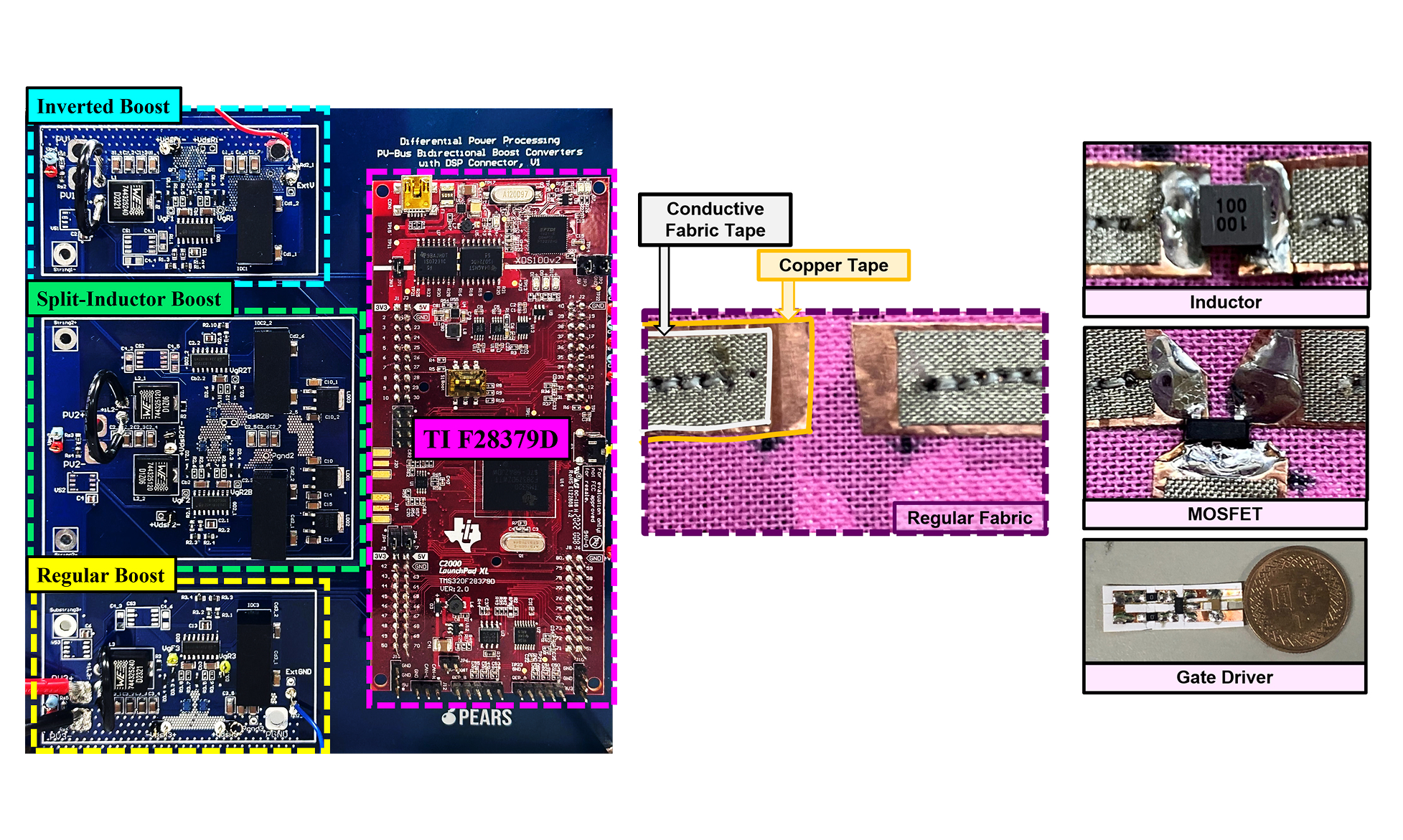金藝璘 Katherine A. Kim

國立臺灣大學電機工程學系暨研究所副教授
學歷
- 美國伊利諾大學厄巴納香檳分校電子計算機工程博士(2014)
- 美國伊利諾大學厄巴納香檳分校電子計算機工程碩士(2011)
- 美國富蘭克林奧林工程學院電子計算機工程學士(2007)
經歷
- 國立臺灣大學電機工程學系暨研究所教授(2024/8~迄今)
- 國立臺灣大學電機工程學系國際半導體學士學位學程教授(2024/8~迄今)
- 國立臺灣大學電機工程學系暨研究所副教授(2019/2~2024/7)
個人勵志銘
Failure is not the end of an idea—it is a sign that it needs transformation to shine brighter.
Innovations in Power Electronics for Solar Energy and Sustainable Technologies
My research is dedicated to advancing power electronics for clean energy and sustainable technologies, focusing on solar photovoltaic power and wearable applications. The underlying objectives of my work are to enable a clean-powered global society that is both technologically advanced and sustainable for many generations to come. My major research contributions are developing more effective solar photovoltaic (PV) power converter systems that utilize differential power processing (DPP) and designing power converters to enable a wider range of wearable devices.
For solar PV systems, I have pioneered a technology called differential power processing (DPP) converters that enhance energy generation efficiency under real-world conditions such as shading and uneven lighting. My research introduced modular DPP converter topologies and control algorithms, achieving significant efficiency gains in a cost-effective implementation. These innovations make solar energy systems more reliable and are designed for commercialization, accelerating the adoption of renewable energy and reducing reliance on fossil fuels.
For wearable applications, I have developed energy harvesting systems that convert ambient solar energy into reliable power for biomedical applications like health/fitness monitoring and rehabilitation therapy. These power electronics solutions are designed to be lightweight, flexible, and efficient. My work addresses the dynamic nature of wearables by developing power converters that operate reliably on flexible substrates, ensuring consistent performance during use. These innovations have the potential to improve healthcare accessibility and empower individuals to manage their health proactively. I also focus on integrating energy harvesting into wearable systems, which aims to reduce the environmental impact of these traditionally battery-reliant systems.
By advancing both renewable energy and wearable technologies, my research contributes to a sustainable, health-focused future. These efforts not only address critical global challenges, such as energy sustainability and healthcare accessibility but also demonstrate how power electronics can bridge the gap between cutting-edge engineering and societal well-being.

得獎感言
I am deeply honored to receive the Ta-You Wu Memorial Award from the National Science and Technology Council. This award holds great significance for me as it reflects the collective legacy and support of many great scholars associated with it. I would like to express my heartfelt gratitude to my family, whose constant support and encouragement have been my greatest source of strength. I am also profoundly grateful to my mentors, whose guidance and support have shaped both my academic career and my personal growth. I am deeply appreciative of their wisdom and generosity. To the faculty at the NTU EE Department and my colleagues in power electronics, thank you for fostering such a supportive and collaborative environment. Bolstered by this award, I am committed to advancing knowledge and pursuing meaningful solutions that address global challenges in power electronics and renewable energy for the betterment of our society. Thank you.

